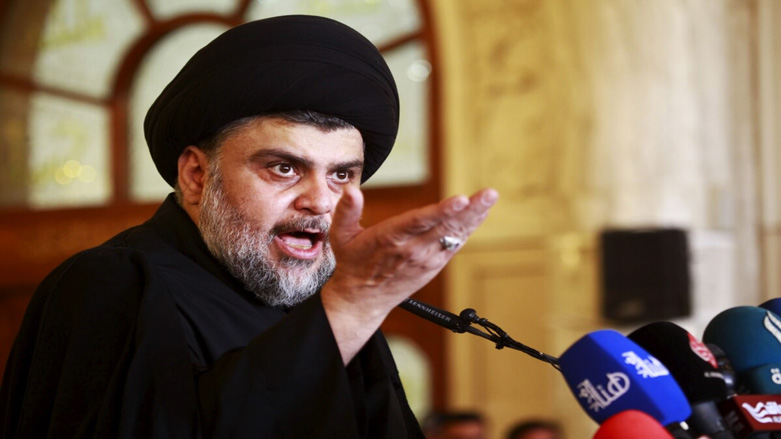Iraqi police deny reports of skirmish with Sadr's militia in Tuz Khurmatu

ERBIL (Kurdistan 24) - Iraqi police officials denied recent claims that one of its elite units clashed with militias loyal to Shia cleric Muqtada al-Sadr in the city of Tuz Khurmatu and described an alternate version of events to those reported in local media the day before.
“Al-Sadr’s Saraya al-Salam militias received a tip that a rapid response unit came under a terrorist attack near a security checkpoint in Salahuddin [province]," read a statement released to the press on Tuesday.
“Immediately, the militias rushed to the site of the incident, and one of the policemen stationed at the checkpoint opened fire at them because he thought they were terrorists,” the statement continued, adding that it did not happen as a result of any hostilities between the groups. “The situation has been successfully contained.”
The statement highlighted that the unit’s commander had “extended thanks to Saraya al-Salam fighters and praised their efforts to protect the city.”
Tuz Khurmatu is a multi-ethnic town populated Kurds, Arabs, and Turkmen and is located in northern Salahadin province near the border of Kirkuk.
Saraya al-Salam, previously known as the al-Mahdi Army, is an armed Shia faction founded by Sadr. Though it operates under the umbrella of the Hashd al-Shaabi militias, it is viewed by many as apart from the rest, due to Sadr's independent and often unexpected pronouncements and leadership decisions.
In early April, the leader ordered the group to provide security for the Baghdad-Kirkuk road, on which Tuz Khurmatu is a popular stopping point for travelers.
Sadr is also the leader of the al-Ahrar Bloc in the Iraqi Parliament which currently holds 34 seats out of total 328. For the upcoming Iraqi parliamentary elections, he formed a coalition with other Shia parties, excluding the leading Dawa Party.
